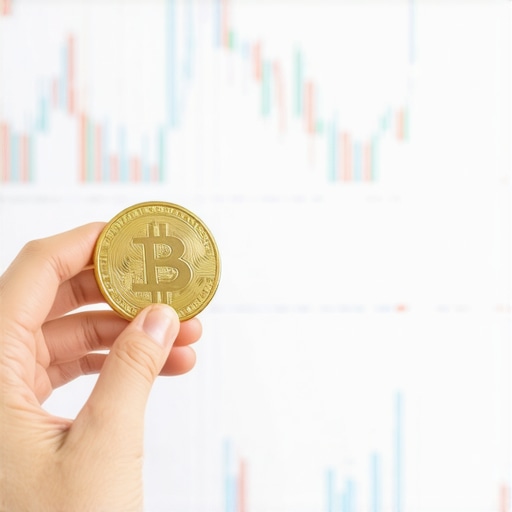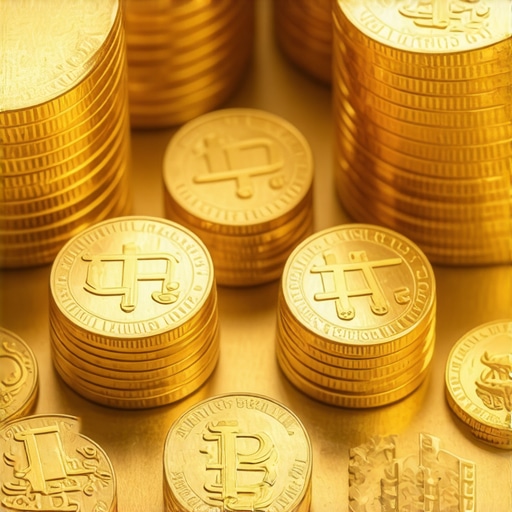Why Consider Gold Coins for Investment?
Gold coins have long been a favored choice for investors looking to diversify their portfolios. Unlike other forms of investments, gold coins combine the allure of precious metal with tangible assets. With their historical significance and intrinsic value, they represent not just a financial investment, but also a piece of art and history.
What Makes Gold Coins a Unique Investment?
Investing in gold coins offers several advantages over traditional investments such as stocks or bonds. Firstly, gold coins serve as a hedge against inflation and economic downturns. As the value of currency fluctuates, the price of gold typically rises, making it a reliable store of value.
Moreover, gold coins are portable and easily liquidated. In a situation where cash is needed quickly, selling gold coins can often be done with relative ease compared to liquidating other investments. Additionally, coins like the American Gold Eagle or the Canadian Maple Leaf are recognized worldwide, ensuring you can convert them to cash in various markets.
Are Gold Coins a Good Investment for Beginners?
For new investors, gold coins can be a safe entry point into the world of precious metals. They are less volatile than gold stocks or ETFs, providing a more stable investment option. Moreover, the tangible nature of gold coins can give a sense of security that stocks or bonds cannot provide. According to Investopedia, gold coins have intrinsic value, meaning they will retain worth regardless of market conditions.
Additionally, many investors appreciate the aesthetic appeal of gold coins, which can make acquiring and holding them more enjoyable. Collecting coins adds a personal touch to investing, allowing you to explore different designs and histories.
How to Start Investing in Gold Coins?
To begin your journey in gold coin investment, start by educating yourself on the different types of coins available. Research reputable dealers and look for coins with high liquidity and recognition. As a beginner, consider starting with one or two pieces and gradually building your collection as you become more comfortable.
In conclusion, gold coins offer a unique blend of beauty, historical significance, and financial security, making them an attractive investment option. Whether you’re a beginner or an experienced investor, considering gold coins in your portfolio can provide a hedge against economic uncertainty and diversify your investments. Have you considered investing in gold coins? Share your thoughts in the comments below!
Understanding the Value of Gold Coins in Today’s Market
In the current economic climate, gold coins hold significant value as a secure investment. Their worth isn’t just tied to the market price of gold; it also encompasses their collectible appeal and historical significance. As inflation rises and economic uncertainties loom, many investors are turning to physical assets like gold coins as a means to preserve wealth.
What Factors Influence the Value of Gold Coins?
The value of gold coins can be influenced by several factors, including their rarity, condition, and the current demand for gold. Coins that are part of limited editions or those with historical relevance, such as the American Gold Eagle, often fetch higher prices due to their collectibility. Furthermore, market trends and the overall performance of gold as a commodity can also affect their valuation.
According to Wikipedia, the intrinsic value of gold coins is derived from their gold content, but collectors are also willing to pay a premium for coins that possess unique characteristics. This dual value proposition makes gold coins an attractive option for both investors and collectors alike.
How to Assess the Quality of Gold Coins?
When investing in gold coins, it’s essential to evaluate their quality carefully. The grading of coins is an industry standard that affects their market price. Coins are graded on a scale from 1 to 70, with higher grades indicating better quality. Investors should seek coins that are graded at least MS-65 to ensure they are acquiring high-quality pieces that will hold their value over time.
Additionally, be sure to purchase from reputable dealers who provide certification for their coins. This not only guarantees authenticity but also gives you peace of mind regarding the investment you are making.
How Can Gold Coins Fit into Your Investment Strategy?
Gold coins can be a strategic addition to any investment portfolio. By diversifying your assets with physical gold, you can mitigate risks associated with market volatility. Coins can serve as a hedge against currency devaluation and stock market fluctuations, providing a sense of stability in uncertain times. Investing in gold coins also allows you to take advantage of potential price increases, particularly when global economic conditions are unstable.
Moreover, gold coins can be a great way to pass down wealth through generations due to their historical and collectible nature. As you consider your long-term investment strategy, incorporating gold coins can enhance your portfolio’s resilience and growth potential.
What are your thoughts on investing in gold coins? Feel free to share your experiences or questions in the comments below!
The Importance of Diversifying with Gold Coins
Incorporating gold coins into your investment strategy not only adds a layer of security but also enhances portfolio diversification. As financial markets fluctuate, having a portion of your assets in tangible goods like gold can help stabilize your overall portfolio performance. Gold coins, with their intrinsic value and historical significance, offer a viable way to hedge against inflation and economic downturns.
People Also Ask: How Do Gold Coins Compare to Other Investments?
Gold coins differ significantly from traditional investments such as stocks and bonds. While equities can be influenced by market sentiment and corporate performance, gold coins maintain their value through intrinsic worth and demand. According to Investopedia, gold often serves as a safe-haven asset, especially during times of economic uncertainty, making them a reliable option for risk-averse investors.
Furthermore, unlike stocks, gold coins offer physical ownership, which can provide peace of mind. This tangible asset can be particularly appealing during economic crises when investors seek to safeguard their wealth from currency devaluation and stock market volatility. The demand for gold coins remains consistently high, driven by both investment and collector interest.
What Are the Key Benefits of Investing in Gold Coins?
Investing in gold coins offers a host of benefits that appeal to both seasoned investors and newcomers alike. Firstly, gold coins have a historical significance that can enhance their appeal. Many investors find joy in collecting coins with unique designs and stories behind them, making them not just an investment but also a hobby.
Additionally, gold coins are often easier to sell than other forms of gold investments, such as bars or jewelry. Their recognized value and portability make them a preferred option for many investors looking to liquidate assets quickly.
How to Stay Informed on Gold Market Trends?
Staying updated on gold market trends is crucial for making informed investment decisions. Following reputable financial news sources, subscribing to newsletters, and joining investment forums can help you keep track of market movements. Regularly monitoring economic indicators, such as inflation rates and central bank policies, can also provide insights into future gold price movements.
Moreover, consider utilizing market analysis tools or consulting with financial advisors who specialize in precious metals. Their expertise can guide you through fluctuating market conditions, helping you optimize your investment strategy.
Conclusion: The Future of Gold Coin Investments
As we navigate through economic uncertainties and changing market dynamics, the role of gold coins in investment strategies becomes increasingly vital. Their unique combination of beauty, historical significance, and financial security makes them a compelling choice for diversifying your portfolio. Whether you’re a novice investor or a seasoned pro, integrating gold coins into your investment approach can enhance your financial resilience.
What are your thoughts on investing in gold coins? Do you think they are a valuable addition to your portfolio? Share your experiences in the comments below or explore our next article on understanding gold ETFs for further insights!
Understanding the Tax Implications of Investing in Gold Coins
When investing in gold coins, it is essential to consider the tax implications that can affect your returns. Like other investment assets, gold coins are subject to capital gains tax when sold for a profit. This means that any increase in value from the time of purchase to the time of sale may be taxable, which is crucial for investors to understand.
What Are the Capital Gains Tax Rates on Gold Coins?
Capital gains tax rates can vary significantly depending on your income level and the duration for which you hold the gold coins. If you sell gold coins after holding them for more than one year, you may qualify for long-term capital gains rates, which are generally lower than short-term rates. According to the IRS, long-term capital gains are taxed at 0%, 15%, or 20%, depending on your income bracket. Understanding this can help you strategize your sales to minimize tax liabilities.
Conversely, if you sell your gold coins within a year of purchase, the gains will be taxed as ordinary income, which can be significantly higher. Therefore, holding onto your gold coins for the long term may be a more tax-efficient strategy.
Are There Any Tax Exemptions or Special Considerations?
Investors should also be aware of any potential exemptions or special considerations that apply to gold coin investments. For instance, certain coins classified as collectibles may be subject to a higher capital gains tax rate of 28%. This applies to coins that are deemed collectibles by the IRS, including some gold bullion coins and numismatic coins. As such, it is essential to check the classification of your gold coins before making any sales.
How to Track and Report Gold Coin Investments for Taxes?
Keeping accurate records of your gold coin purchases, sales, and any associated costs is vital for tax reporting. Documentation such as purchase receipts, sales invoices, and any certifications should be maintained to substantiate your investment activities. When tax season arrives, you will need to report any gains or losses on your tax return accurately. This can be done using IRS Form 8949, where you’ll list each transaction.
Additionally, consider consulting a tax professional familiar with precious metals investments to ensure compliance and optimize your tax strategy. They can provide personalized advice based on your financial situation and investment portfolio.
The Benefits of Professional Guidance in Gold Investments
Engaging with a financial advisor or a tax consultant who specializes in gold investments can provide numerous benefits. They can help you navigate complex tax regulations, optimize your investment strategy, and ensure you are making informed decisions that align with your financial goals. Investing in gold coins can be lucrative, but understanding the tax landscape is crucial to maximizing your profits.
In conclusion, while gold coins can be a rewarding addition to your investment portfolio, understanding the tax implications surrounding them is vital. From capital gains tax rates to record-keeping, being informed can help you make better financial decisions. What strategies have you found effective in managing your gold investment taxes? Share your experiences in the comments below!
Frequently Asked Questions (FAQ)
1. What are the best gold coins for investment?
The best gold coins for investment typically include popular options such as the American Gold Eagle, Canadian Maple Leaf, and South African Krugerrand. These coins are recognized worldwide and have high liquidity, making them valuable for both collectors and investors.
2. How do I determine the value of my gold coins?
The value of gold coins is determined by their gold content, rarity, condition, and current market demand. You can use online resources or consult with a professional appraiser to get an accurate assessment of your coins’ value.
3. Is it better to invest in gold coins or gold bars?
Investing in gold coins offers advantages like easier liquidity and collectible appeal, while gold bars may offer a lower premium over spot price. The choice depends on your investment goals and personal preferences regarding physical gold.
4. How should I store my gold coins?
Gold coins should be stored in a safe, secure location to protect against theft and damage. Options include safety deposit boxes, home safes, or specialized coin holders designed to prevent scratching and tarnishing.
5. What is the difference between numismatic coins and bullion coins?
Numismatic coins are valued for their rarity and historical significance, while bullion coins are valued primarily for their gold content. Investors typically focus on bullion coins for their intrinsic value, while collectors may seek numismatic coins for their uniqueness.
6. Are there risks associated with investing in gold coins?
Yes, like any investment, there are risks involved in investing in gold coins. These include market fluctuations, potential counterfeit coins, and storage concerns. It’s essential to educate yourself and work with reputable dealers to mitigate these risks.
7. Can I include gold coins in my retirement account?
Yes, certain gold coins can be included in a self-directed IRA as long as they meet the IRS standards for precious metals. Coins must typically be 24-karat gold and meet specific purity requirements.
8. How do economic factors influence gold coin prices?
Gold coin prices are influenced by various economic factors, including inflation rates, interest rates, and geopolitical stability. When economic uncertainty rises, demand for gold typically increases, driving up prices.
9. What is the best way to sell my gold coins?
To sell your gold coins, you can approach local coin shops, online dealers, or auction houses. Ensure you research the current market value and choose a reputable buyer to get the best price for your coins.
10. Should I insure my gold coin collection?
Insuring your gold coin collection is advisable to protect against theft or loss. Consult with your insurance provider to understand the best coverage options available for your investment.
Authoritative Sources
1. Investopedia – A trusted resource for financial education, providing insights into gold coin investments.
2. IRS – The official site for tax information, including guidelines on capital gains tax for gold investments.
3. Kitco – A leading platform for precious metals market analysis and prices, offering valuable insights for investors.
4. Coin World – A well-known source for news and information about coin collecting and gold investments.
5. Numismatic News – Provides updates on coin collecting trends and insights relevant to gold coin investments.
Conclusion
Investing in gold coins offers unique opportunities for portfolio diversification and wealth preservation. Their historical significance and intrinsic value make them an appealing choice for both new and seasoned investors. As you consider your investment strategy, remember the importance of understanding market trends and the tax implications associated with gold coins. Whether you are looking to hedge against inflation or simply enjoy collecting, gold coins can be a valuable addition to your financial strategy. Share your thoughts on investing in gold coins in the comments below or explore our next article on understanding gold ETFs for further insights!










This article offers a comprehensive overview of why gold coins can be a strategic part of an investment portfolio, especially for those who prefer tangible assets. I particularly resonate with the idea that gold coins serve as both a hedge against inflation and a collectible, which adds an emotional layer to the investment. From my experience, starting with popular coins like the American Gold Eagle has been a good way to learn the market without taking on excessive risk.
One challenge I faced early on was assessing the authenticity and condition of coins from less reputable dealers. Ensuring proper certification and dealing with reputable sources really helps mitigate that risk. I’m curious—how do others here approach verifying the quality and legitimacy of their gold coins? Are there specific certifications or grading services you rely on? Looking forward to hearing everyone’s tips on building a trusted collection.